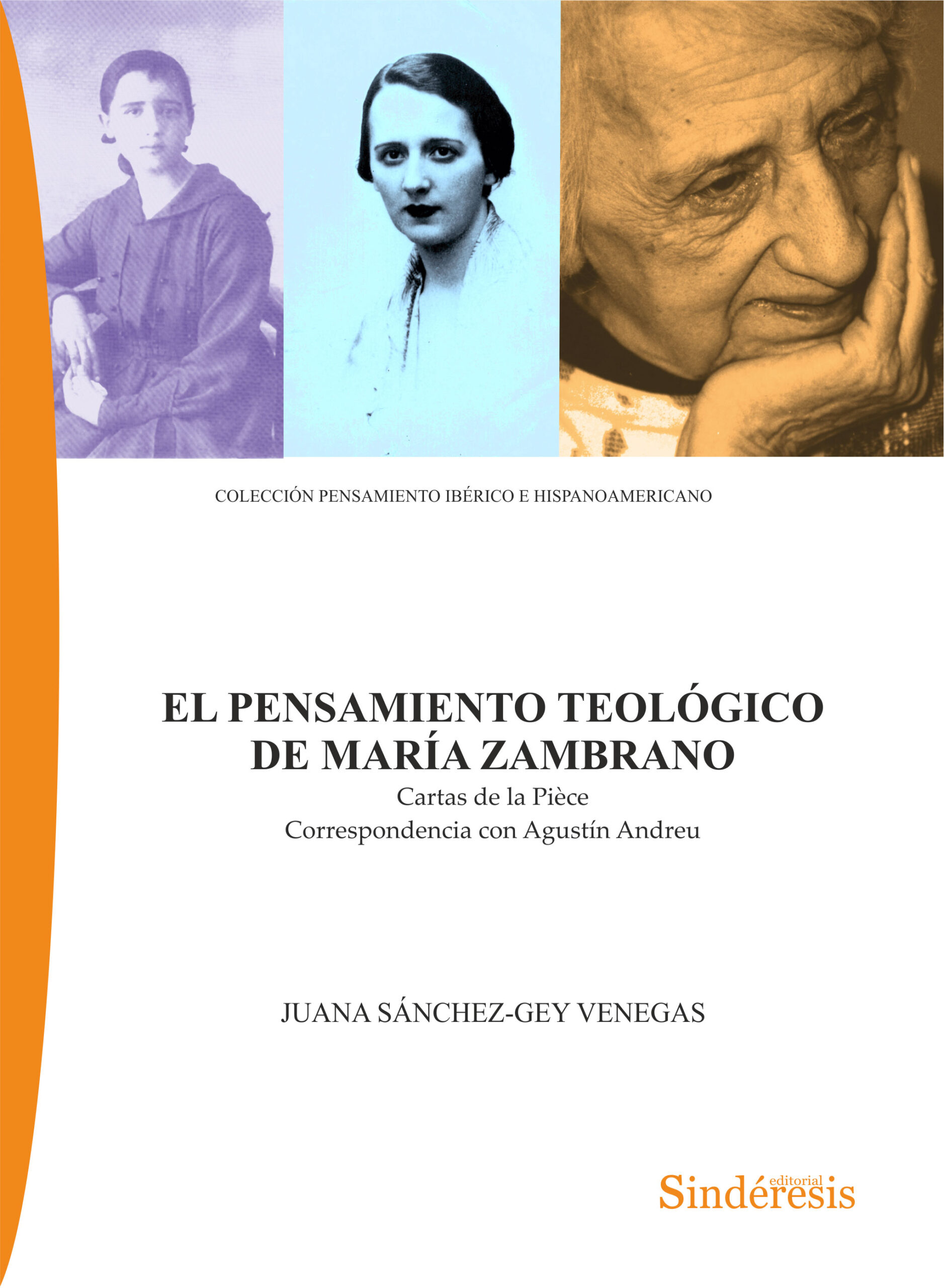As is well known, Christian humanism in the seventies and eighties gave birth to many ideologies and political parties in Spain at the beginning of democracy, when the various activists of the new politics were sharpening their arguments and wishing to attract followers to their philosophical and cultural positions.
Undoubtedly, the book by Juana Sanchez-Gey y Venegas, professor of philosophy at the Autonomous University of Madrid, illustrates one of those sources of thought that filled the current of Christian humanism in Spain, until now quite unknown.
It is a fact that Maria Zambrano (1904-1991), disciple of Ortega, Garcia Morente y Zubiri (21), was during her long exile from Spain, from 1939 to 1984, both in America and in various European countries, a standard-bearer of Orteguian thought, but with her own accents. Among others, her fidelity to Christianity and her constant deepening of the mysteries of the Catholic faith. In fact, her deep-rooted beliefs caused her to lose academic opportunities in Mexico and forced her to leave Cuba, etc.
Theological thinking
Professor Juana Sánchez-Gey has had the good sense to search through all of María Zambrano's writings, her letters and her autobiographical relationships, for clues to present us, in a fairly orderly fashion and in concert, María Zambrano's "theological" thought, something that is generally unknown to the general public, more accustomed to recognizing facets of her philosophy such as "poetic reason" (p. 21) and other specific contributions of the Malaga-born philosopher to Spanish and Western culture.
Precisely, Professor Juana Sánchez-Gey will emphasize from the beginning the naturalness with which María Zambrano habitually showed her Christian faith, since it was really the reason for her life, indeed, a way of living (p. 36). Moreover, this faith will be closely linked to poetry, because for her poetry is a way of praying, of accessing mysticism and philosophical thought: "poetry is a gift, a grace open to transcendence" (p. 34).
Next, Juana Sánchez-Gey tells us that Maria Zambrano defends a "liberal and ethical humanism" (p. 43). Moreover, her way of converging with Christian humanism will be through philosophy and poetry, in "poetic reason". As she will affirm, in philosophy: "if you don't go beyond, you don't go anywhere" (p. 48).
Anthropological vision
The anthropological question will be key, as in Ortega, both for philosophy and theology: "The Christian principle of liberalism, the exaltation of the human person to the highest rank among all that is valuable in the world, was hidden under swelling, under pride (...), but full of confidence in man" (p. 47). All this and more is called "original sense", because it discovers the human condition as a creature of God: "man has the vocation of transparency, even if he does not achieve it" (p. 50).
Shortly after, Juana Sanchez-Gey will bring up some beautiful texts: "Zambrano's proposal points towards a philosophy as mediation, which welcomes the sense of a religion whose God is incarnate and merciful (...). His ideal of a philosophy as salvation leads him to this dialogue with religion from St. Augustine to St. Thomas, who strove to serve as mediation between the divine infinitude and man, a constitutive relationship of the human being, always counting on freedom, through which the person is united and fulfilled in this relationship or can, because he has the capacity, reject it" (p. 52).
Moreover: "Love is the source of knowledge because only it can tell who man is and what his vocation is. Thus he accepts a philosophy that presents itself as a creative and unitive gaze, because poetry and philosophy in unity strengthen love" (p. 61).
Sense of origin
Let us remember that "the original feeling is a basic theme in Zambrano's relationship. As it is relevant to speak of the soul, of suffering, of vocation, all of them will be the themes that are recovered from the 'original feeling', philosophy or poetic reason, then it becomes more human and more divine. Poetic reason that is, at the same time, metaphysical and religious" (p. 64).
In the second part of the work we are presenting, Professor Juana Sanchez-Gey dwells more specifically on the philosopher Maria Zambrano's treatment of theological questions properly speaking, and thus she will enunciate some of them: "the divine processions, especially the mission of the Holy Spirit, the incarnation of Christ, the Virgin, the liturgy and the reception of Vatican II, among other personal experiences. The search for the Spirit as the foundation of knowledge is discovered in an outstanding way, so that one could go so far as to say that this experience is at the origin of his rejection of rationalism in philosophy and materialism in his conception of the person, which he conceives as a spiritual being" (p. 75).
Correspondence
A large part of the topics summarized in this second part come from the Letters of the Pièce. That is to say, the correspondence with Agustín Andreu, then a young priest and doctoral student in Rome, with whom he established a fluid dialogue.
First of all, this summary highlights the close relationship between philosophy and theology, especially through the school of Alexandria in general and, in particular, Clement of Alexandria (150-215), as an awakener: "the being that awakens thinking" (p. 78).
He will soon enter into harmony with St. Augustine, the Father of the Church, with whom he will be in permanent dialogue, and in particular with two of his works: "The Confessions" and "The City of God" where he will find "the Truth that dwells within man" (p. 79).
Moreover, in this intense dialogue with Agustín Andreu and Ortega "we can perceive the distances between both thoughts. They are separated by the conception of the spirit and even by that longing of ethical roots which is personal perfection and the desire for a better world: that doing good is not lost even in dreams" (p. 83).
The theological thought of María Zambrano









